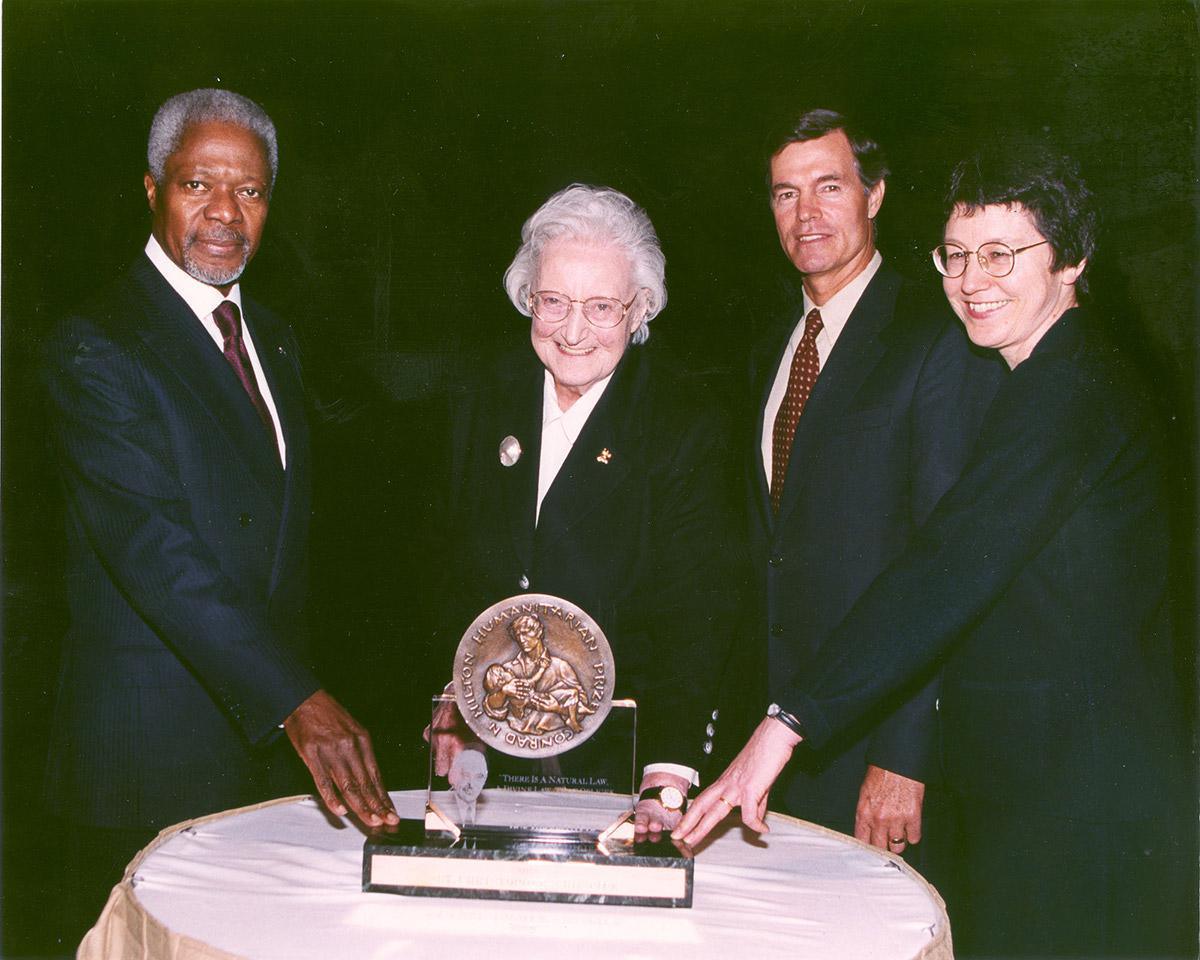AUDIO
Between 1967 and 1985 Dr Saunders was Medical Director at the hospice. During this time the work of St Christopher’s gained international recognition and affirmed the work Cicely had undertaken in preparation for its opening.
The hospice movement was well and truly established; a global community of people campaigning for better rights for the dying was formed. In particular they fought against the neglect of people with terminal illness, as well as the medicalisation of death. They represented and spoke up for the dying, undertaking and documenting research which was acknowledged by medical professionals. As an example, Dr Saunders hired Robert Twycross, a research fellow, to conduct studies into pain control, including a comparison between morphine and diamorphine given orally.
Cicely Saunders contribution to the care of dying people was recognised with the award of the Order of the British Empire (OBE) in 1965 and recognition as a Dame of the British Empire (DBE) in 1979. She was made a member of the Order of Merit (OM), an honour in the personal gift of the queen in 1989. There are only 24 people at any time to hold this honour. Dame Cicely also received over 25 honorary doctorates from universities across the world.
The recognition of the movement and its impact can be seen when in 2001 St Christopher’s Hospice received the Conrad N Hilton Humanitarian Prize – the world’s most prestigious and largest humanitarian award, which was presented by Kofi Annan.
A hospice is about living until you die
Dame Cicely Saunders
RESOURCES
The items below will require an internet connection (WiFi, 3G or 4G)
LISTEN
Cicely Saunders in the Psychiatrists Chair
LISTEN
As part of the St Christopher’s Oral History Project, hear from Deborah Holman on the International Reputation St Christopher's Hospice.


